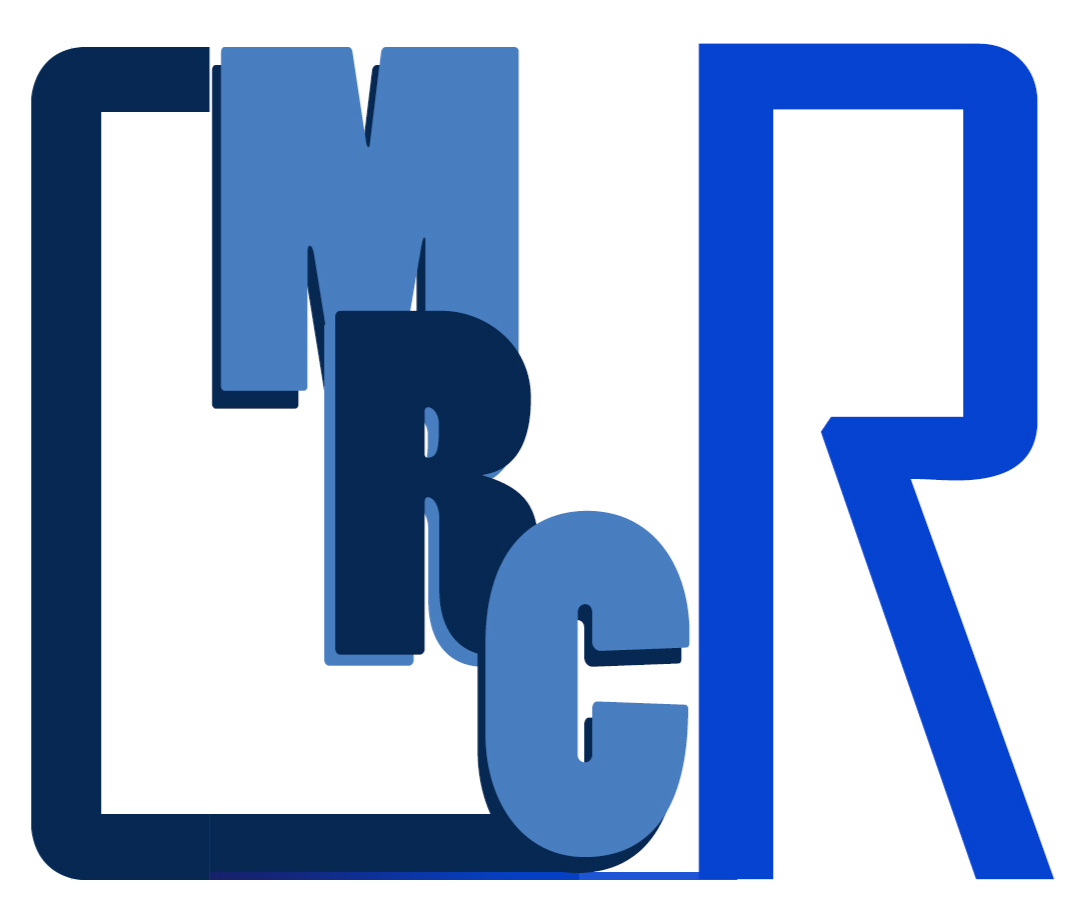Clinical Medical
Reviews and Case Reports
Can Genetic Testing Provide Information to Develop Customized Nutrigenomic Solutions for Reward Deficiency Syndrome?
Kenneth Blum1-8*, Rajendra D Badgaiyan9,10, Zsolt Demotrovics11, James Fratantonio11, Gozde Agan1 and Marcelo Febo1
1Department of Psychiatry & McKnight Brain Institute, University of Florida College of Medicine, USA
2Department of Nutrigenomics, RD Solutions Inc, USA
3Department of Addiction Research & Therapy, Malibu Beach Recovery Center, USA
4Department of Psychiatry, Human Integrated Services Unit, University of Vermont Center for Clinical & Translational Science, University of Vermont College of Medicine, USA
5Department of Personalized Addiction Medicine IGENE, LLC, USA
6Divisions of Applied Clinical Research & Addiction Services, Dominion Diagnostics, USA
7Department of Nutrigenetic & Nutrigenomic Research, Victory Nutrition International, USA
8National Institute of Holistic Addiction Studies, USA
9RD Solutions Inc, Salt Lake City Utah, USA
10Department of Psychiatry, University of Minnesota, College of Medicine, USA
11Eotvos Lorand University, Institute of Psychology, Department of Clinical Psychology and Addiction, Hungary
*Corresponding author: Kenneth Blum, Department of Psychiatry & McKnight Brain Institute, University of Florida College of Medicine, Gainesville, USA, E-mail: drd2gene@gmail.com
Clin Med Rev Case Rep, CMRCR-2-018, (Volume 2, Issue 2), Opinion; ISSN: 2378-3656
Received: February 26, 2015 | Accepted: February 27, 2015 | Published: February 28, 2015
Citation: Blum K, Badgaiyan RD, Demotrovics Z, Fratantonio J, Agan G, et al. (2015) Can Genetic Testing Provide Information to Develop Customized Nutrigenomic Solutions for Reward Deficiency Syndrome? Clin Med Rev Case Rep 2:018. 10.23937/2378-3656/1410018
Copyright: © 2015 Blum K, et al. This is an open-access article distributed under the terms of the Creative Commons Attribution License, which permits unrestricted use, distribution, and reproduction in any medium, provided the original author and source are credited.
We are entering the era of genomic medicine and neuroimaging as it relates to addiction a subset of Reward Deficiency Syndrome (RDS) [1-3]. In 2005 our laboratory received the first USA patent on Nutrigenomics and RDS treatment. This was awarded on the basis of our earlier work showing anti-addiction activity of a nutraceutical consisting of amino-acid precursors and enkephalinase inhibition properties and our discovery of the first polymorphic gene (Dopamine D2 Receptor Gene [DRD2] to associate with sever alcoholism [4-7]. Prior to the later genetic finding we developed the concept of Brain Reward Cascade which continues to act as blue-print for stratification of addiction risk through neurogentics [8].
In 1996 our laboratory also coined the term "Reward Deficiency Syndrome (RDS)" to define a common genetic rubric for both substance and non-substance related addictive behaviors [9,10]. Following many reiterations we utilized polymorphic targets of a number of reward genes (serotonergic, Opioidergic, GABAergic and Dopaminergic) to customize KB220 [ Neuroaaptogen- amino-acid therapy (NAAT)] by specific algorithms. Identifying 1,000 obese subjects in the Netherlands a subsequent small subset was administered various KB220 formulae customized according to respective DNA polymorphisms individualized that translated to significant decreases in both Body Mass Index (BMI) and weight in pounds [11]. This was followed up in the USA with similar significant effects [12,13]. Following these experiments we have been successfully developing a panel of genes known as "Genetic Addiction Risk Score [14,15] (GARSDX)™.
In unpublished work, we found that when we selected 10 genes with appropriate variants, a statistically significant association between the ASI- Media Version -alcohol and drug severity scores and GARSDX provided the first validated genetic panel for RDS. This observation was found in 273 patients attending seven diverse treatment centers. This now validated panel could be utilized to provide a personalized approach by coupling gene polymorphisms with potential nutrigenomic solutions.
Independently, a variant of NAAT –KB220Z in abstinent heroin addicts, increased resting state functional connectivity. Specifically we observed enhanced rs functional connectivity in a putative network that included the dorsal anterior cingulate, medial frontal gyrus, nucleus accumbens, posterior cingulate, occipital cortical areas, and cerebellum [16].In other unpublished rat work using a novel segmented rat atlas, we show that KB220Z significantly activates, above placebo, seed regions of interest including the left nucleus accumbens, cingulate gyrus, anterior thalamic nuclei, hippocampus, pre-limbic and infra-limbic loci. This response induced by KB220Z demonstrates significant functional connectivity, increased brain volume recruitment and enhanced dopaminergic functionality across the brain reward circuitry. This robust yet selective response implies clinical relevance. These results and other quantitative electroencephalogy (qEEG) experiments results suggest a putative anti-craving/anti-relapse role of KB220Z in addiction by direct or indirect dopaminergic interaction [17].
We are now paused to propose a Reward Deficiency System Solution that promotes early identification and stratification of risk alleles by utilizing GARSDx allowing for customized nutrigenomic targeting of these risk alleles by altering NAAT ingredients as an algorithmic function of carrying these polymorphic DNA –SNPS potentially yielding the first ever nutrigenomic solution for addiction and pain[18]. The concept of dopaminergic activation in the long term is supported by the recent work of Willuhn et al. showing that a deficiency of phasic dopamine causes escalation of cocaine intake in animals. This suggests dopamine agonistic therapy rather than dopamine antagonistic therapy in the long-term treatment with patients presenting with RDS[19].
Certainly, we encourage others to also develop similar addiction algorithms based on reward gene polymorphisms and as therapeutic targets to improve clinical outcomes and long term remission for all RDS addictive behaviors.
Acknowledgements
The authors appreciate the expert edits by Margaret A. Madigan.
Funding
Rajendra D. Badgaiyan is supported by the National Institutes of Health grants 1R01NS073884 and 1R21MH073624; and VA Merit Review Awards CX000479 and CX000780. Kenneth Blum is the recipient of a grant to PATH FOUNDATION NY, by Life Extension Foundation, Ft/ Lauderdale, Florida. Marcelo Febo is the recipient of R01DA019946. The authors are appreciative of the support of Mary Hauser, Lisa Marzilli, and Chris Campanella of Dominion Diagnostics, LLC.
Conflict of Interest
Kenneth Blum, PhD is the holder of a number of US and Foreign patents issued and pending related to Nutrigenomics and Nutraceuticals. Through IGENE LLC., Dr. Blum exclusively licensed the Genetic Addiction Risk Score (GARS)™ to Dominion Diagnostics, LLC. Dr. Blum is also an officer and stock holder of IGENE, LLC, RD Solutions and Victory Nutrition International. He is a paid consultant of Dominion Diagnostics, LLC, IGENE, Malibu Recovery Center. Dr. Blum is a member of the scientific advisory board of Dominion Diagnostics, LLC and is Chief Scientific Advisor of Dominion Diagnostics, LLC; RD Solutions, Inc, Victory Nutrition International, LLC. Gozde Agan and James Fratantonio are employed by Dominion Diagnostics. The are no other author conflicts of interest.
References
-
Blum K, Febo M, McLaughlin T, Cronje FJ, Han D, et al. (2014) Hatching the behavioral addiction egg: Reward Deficiency Solution System (RDSS)™ as a function of dopaminergic neurogenetics and brain functional connectivity linking all addictions under a common rubric. J Behav Addict 3: 149-156.
-
Alguacil LF, González-Martín C (2014) Target identification and validation in brain reward dysfunction. Drug Discov Today S1359-6446: 00419-X.
-
Hahn T, Notebaert KH, Dresler T, Kowarsch L, Reif A, et al. (2014) Linking online gaming and addictive behavior: converging evidence for a general reward deficiency in frequent online gamers. Front Behav Neurosci 8: 385.
-
Blum K, Oscar-Berman M, Stuller E, Miller D, Giordano J, et al. (2012) Neurogenetics and Nutrigenomics of Neuro-Nutrient Therapy for Reward Deficiency Syndrome (RDS): Clinical Ramifications as a Function of Molecular Neurobiological Mechanisms. J Addict Res Ther 3: 139.
-
Blum K, Noble EP, Sheridan PJ, Montgomery A, Ritchie T, et al. (1990) Allelic association of human dopamine D2 receptor gene in alcoholism. JAMA 263: 2055-2060.
-
Blum K, Oscar-Berman M, Giordano J, Downs B, Simpatico T, et al. (2012) Neurogenetic Impairments of Brain Reward Circuitry Links to Reward Deficiency Syndrome (RDS): Potential Nutrigenomic Induced Dopaminergic Activation. J Genet Syndr Gene Ther 3: 1000e115.
-
Blum K, Gardner E, Oscar-Berman M, Gold M (2012) "Liking" and "wanting" linked to Reward Deficiency Syndrome (RDS): hypothesizing differential responsivity in brain reward circuitry. Curr Pharm Des 18: 113-118.
-
Blum K, Kozlowski GP (1990) Ethanol and neuromodulator interactions: a cascade model of reward. In: Ollat H, Parvez S, Parvez H, editor. Alcohol and Behavior. Utrecht, Netherlands: VSP Press 131-149.
-
Blum K, Sheridan PJ, Wood RC, Braverman ER, Chen TJ, et al. (1996) The D2 dopamine receptor gene as a determinant of reward deficiency syndrome. J R Soc Med 89: 396-400.
-
Blum K, Bailey J, Gonzalez AM, Oscar-Berman M, Liu Y, et al. (2011) Neuro-Genetics of Reward Deficiency Syndrome (RDS) as the Root Cause of "Addiction Transfer": A New Phenomenon Common after Bariatric Surgery. J Genet Syndr Gene Ther S2-001.
-
Blum K, Chen ALC, Chen TLC, Rhoades P, Prihoda P, et al. (2008) Dopamine D2 Receptor Taq A1 allele predicts treatment compliance of LG839 in a subset analysis of a pilot study in The Netherlands. Gene Therapy Mol Biol 12: 129–140.
-
Blum K, Chen AL, Chen TJ, Rhoades P, Prihoda TJ, et al. (2008) LG839: anti-obesity effects and polymorphic gene correlates of reward deficiency syndrome. Adv Ther 25: 894-913.
-
Blum K, Chen TJH, Williams L, Chen ALC, Downs BW, et al. (2008) A short term pilot open label study to evaluate efficacy and safety of LG839, a customized DNA directed nutraceutical in obesity: exploring nutrigenomics. Gene Ther Mol Biol 112.
-
Blum K, Oscar-Berman M, Demetrovics Z, Barh D, Gold MS (2014) Genetic Addiction Risk Score (GARS): molecular neurogenetic evidence for predisposition to Reward Deficiency Syndrome (RDS). Mol Neurobiol 50: 765-796.
-
Blum K, Oscar-Berman M, Dinubile N, Giordano J, Braverman ER, et al. (2013) Coupling Genetic Addiction Risk Score (GARS) with Electrotherapy: Fighting Iatrogenic Opioid Dependence. J Addict Res Ther 4: 1000163.
-
Blum K, Liu Y, Wang W, Wang Y, Zhang Y, et al. (2015) rsf MRI effects of KB220Z™ on neural pathways in reward circuitry of abstinent genotyped heroin addicts. Postgrad Med 127: 232-241.
-
Blum K, Chen TJ, Morse S, Giordano J, Chen AL, et al. (2010) Overcoming qEEG abnormalities and reward gene deficits during protracted abstinence in male psychostimulant and polydrug abusers utilizing putative dopamine D2 agonist therapy: part 2. Postgrad Med 122: 214-226.
-
Chen AL, Chen TJ, Waite RL, Reinking J, Tung HL, et al. (2009) Hypothesizing that brain reward circuitry genes are genetic antecedents of pain sensitivity and critical diagnostic and pharmacogenomic treatment targets for chronic pain conditions. Med Hypotheses 72: 14-22.
-
Willuhn I, Burgeno LM, Groblewski PA, Phillips PE (2014) Excessive cocaine use results from decreased phasic dopamine signaling in the striatum. Nat Neurosci 17: 704-709.





